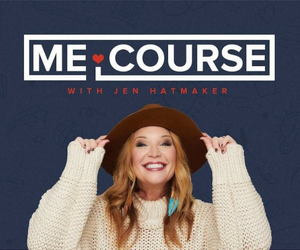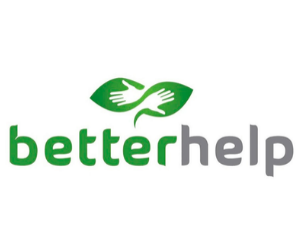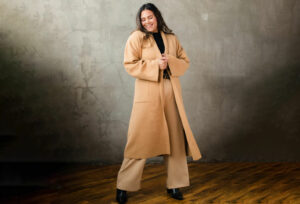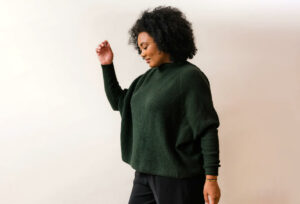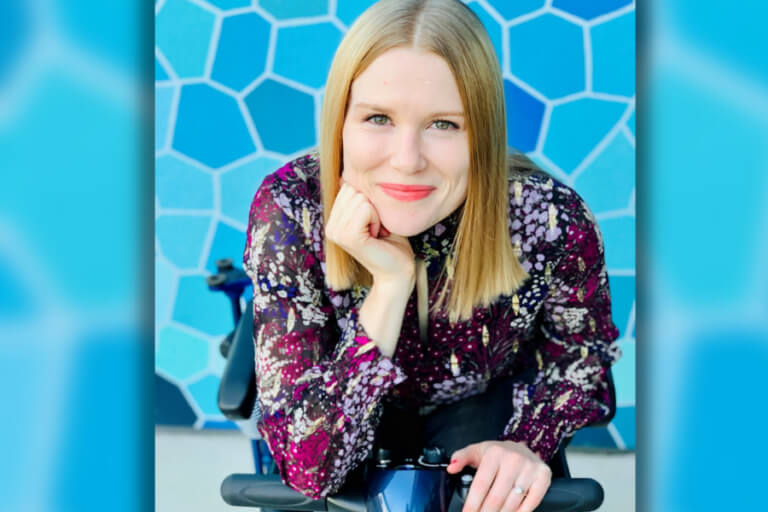
Seeing and Hearing the Disabled Community: Dr. Amy Kenny
Episode 01
We’re back with our series For The Love of Being Seen and Heard. There is so much right now floating around in culture about what happens to us when we don’t feel like we’re either being seen or heard. For most of us, the longing to be understood by others is a core need. And for some groups or communities, including the disabled community, the task of being seen, heard and understood is more challenging, and we’ll hear why as we talk with disabled scholar-practitioner Dr. Amy Kenny. Dr. Kenny has made it her life’s work to shed light on and help clear up misunderstandings around the abled community’s view of the disabled. Her latest book, My Body Is Not a Prayer Request does a deep dive into one of those communities—places of faith—and the particular biases and unintentional ableism propagated there. Amy compassionately offers insight and solutions toward understanding in a new way.
Jen and Dr. Kenny discuss:
- Common misunderstandings that abled people have toward disabled people plus words and actions they can learn from disabled people toward connectedness
- The “invisible qualities of God’s divine nature” and how we might be able to accept imperfections in nature, even considering them beautiful, but are unable to accept or find beauty in the imperfections of our bodies
- “Inspiration porn” a phrase that relates to the overall view of disabled folks being the poster children for overcoming—putting them in the position of feeling as if they are objects on a pedestal and that their sole purpose in life is to inspire the abled
- The challenges around access for disabled people and how to think differently about the right of access for all people
There’s hope in this conversation, and Amy guides us to a place where we can unlearn some ableist tendencies and learn more about a community that has much to contribute to our world.
Hey everybody. Jen Hatmaker here, your host of the For the Love Podcast. You guys, welcome to the show. I loved this episode today, and this is a new space for the podcast. Even after five years, I’m like, oh, this is the first time we’ve really in-depth hosted this particular conversation on the show. And I’m so glad that you’re here today. So right now, you guys were in a series called For the Love of Being Seen and Heard. I don’t even know if I need to explain why we’re in that series. I think every one of us can agree that the longing to simply be understood by someone else, by other people, it’s a core need. I mean, it really is. We physically need to be seen and heard by people who love us. It’s both critical and universal.
Psychologist, Marjorie Schumann said this; “feeling understood is a primary foundation of psychological safety. And part of what makes it possible for us to learn to modulate our emotional states. Understanding is a basic element of intimate connection To the extent that we feel accurately and empathetically understood, we can trust and feel close to one another.”
I really love that quote. It’s interesting how it has such an impact on our psyche that it gives us either the ability or inability to regulate our own emotions. This is real. This is no joke. There are whole groups and demographics of folks who experience not being seen or heard collectively in profound and even heartbreaking ways. And so,, pick your source, whether it’s lack of awareness or lack of education or fear or bias, or just the difficult task of empathy–sometimes there are communities who are constantly being overlooked or who are misunderstood, and it’s not neutral–it’s damaging, and it’s even traumatic.
So one of those communities that we’re gonna talk about today are disabled folks. Did you know that upward of almost 30%. of our population lives with at least one disability. That is a huge percentage, guys, but the rest of the population just may not understand or haven’t done the work to understand what our disabled brothers and sisters are facing. And there’s, of course, a ton of common misunderstandings and assumptions that cause so much harm, like thinking–I don’t know– that all people in wheelchairs are chronically ill or sick, which is just not true. Or maybe you think all disabled people need a caretaker, which is also not true. And probably getting a little closer to the bone–assuming that people with disabilities need help and need to be fixed, right? And so instead of asking, you just jump in and start assisting–effectively othering them. We’re gonna talk about this at length today because our guest has experienced all of these misunderstandings.
We are so lucky to have Dr. Amy Kenny on today. Dr. Kenny’s a disabled scholar-practitioner at a little, unknown university called Georgetown of California. And she’s written about her experiences for all, just, you name it, ta, teen Vogue, sojourners, Shonda land readers, I mean all, she’s all over the place. Um, and she’s one of those people bringing, understanding, support, education and language, frankly, for all kinds of marginalized groups. Not just the disabled community, but including people experiencing homelessness, which actually led her to co-found Jubilee Homes oc, which is a permanent supportive housing initiative in her community.
She’s written an incredible book, you guys, and it’s called My Body Is Not a Prayer Request. And it’s amazing because a super interesting facet of Amy’s work is based around faith communities. She grew up in church and we’re gonna talk about all of this, and what that experience was like to be disabled in a faith space where people are like–well, you’ll have to hear her say it–but imagining that something is; number one–wrong with her and number two– should be fixed. And number three–what can we do to pray away the source that made you this way? It kind of reminds me, and she didn’t mention this, but it reminds me of the little moment in the Bible where the disciples come upon a blind person and they’re like, “who made you blind your mom’s sin or your dad’s sin?”
I mean, some things just haven’t changed at all. And so we’re gonna talk a lot about this and how she invites faith communities to rethink their ableism and to learn from the community about how to move forward and how to live beautiful, authentic, interdependent, interconnected lives together. Because that’s the whole point. That is really the whole point of what we’re doing here. I found her so engaging and interesting and we could have talked forever. She’s really candid with her story, which I’m grateful for and we have a lot to learn here. But I think you’re gonna love this conversation. I just hope it clicks on a little light in a room for you and I am so happy to introduce the wise and the wonderful Dr. Amy Kenny.
Mentioned in this Episode:
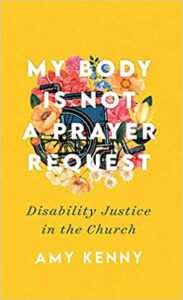
My Body is Not a Prayer Request by Dr. Amy Kenny
Georgetown University’s Disability Culture Initiative
Stella Young’s Memorial Website
Stay Connected with Jen Hatmaker:
FACEBOOK | INSTAGRAM | TWITTER | TIKTOK | YOUTUBE | WEB
Thanks for listening to the For the Love Podcast!
XO – Team Jen
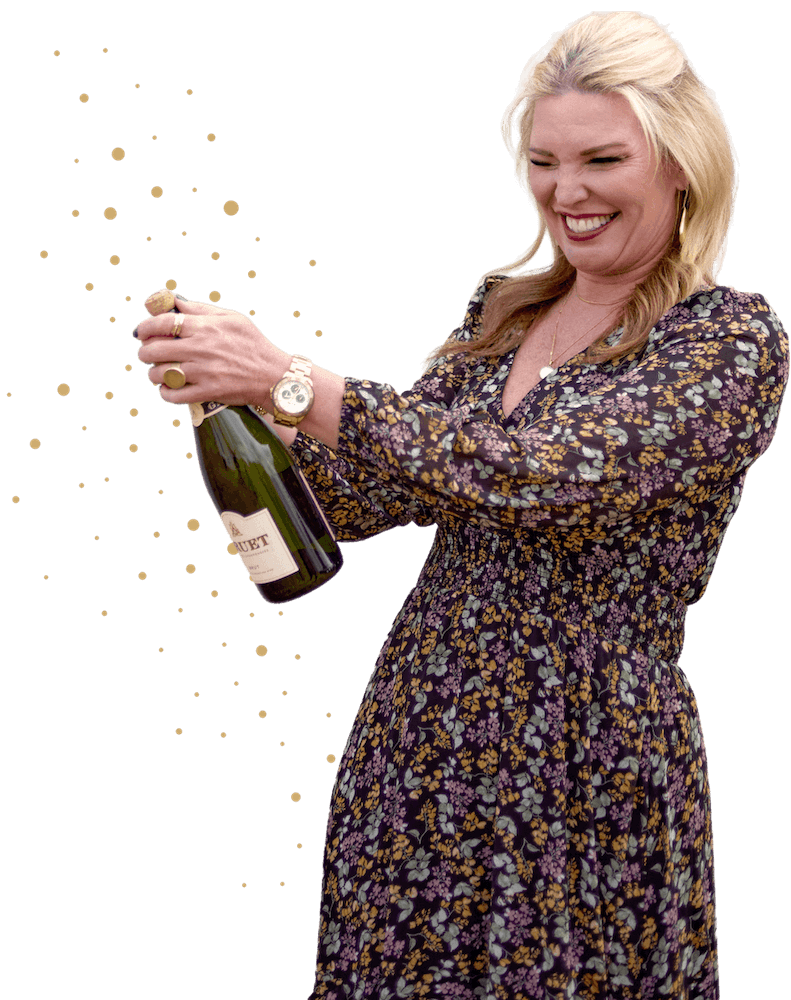
From exclusive, limited-edition items to my must-haves, check out all my latest faves.
CHECK OUT MY GIFT GUIDETake a peek around
If you’re not sure where to begin, I got you, friend. I’m always bringing you something new to enjoy.
Read More About Jen


